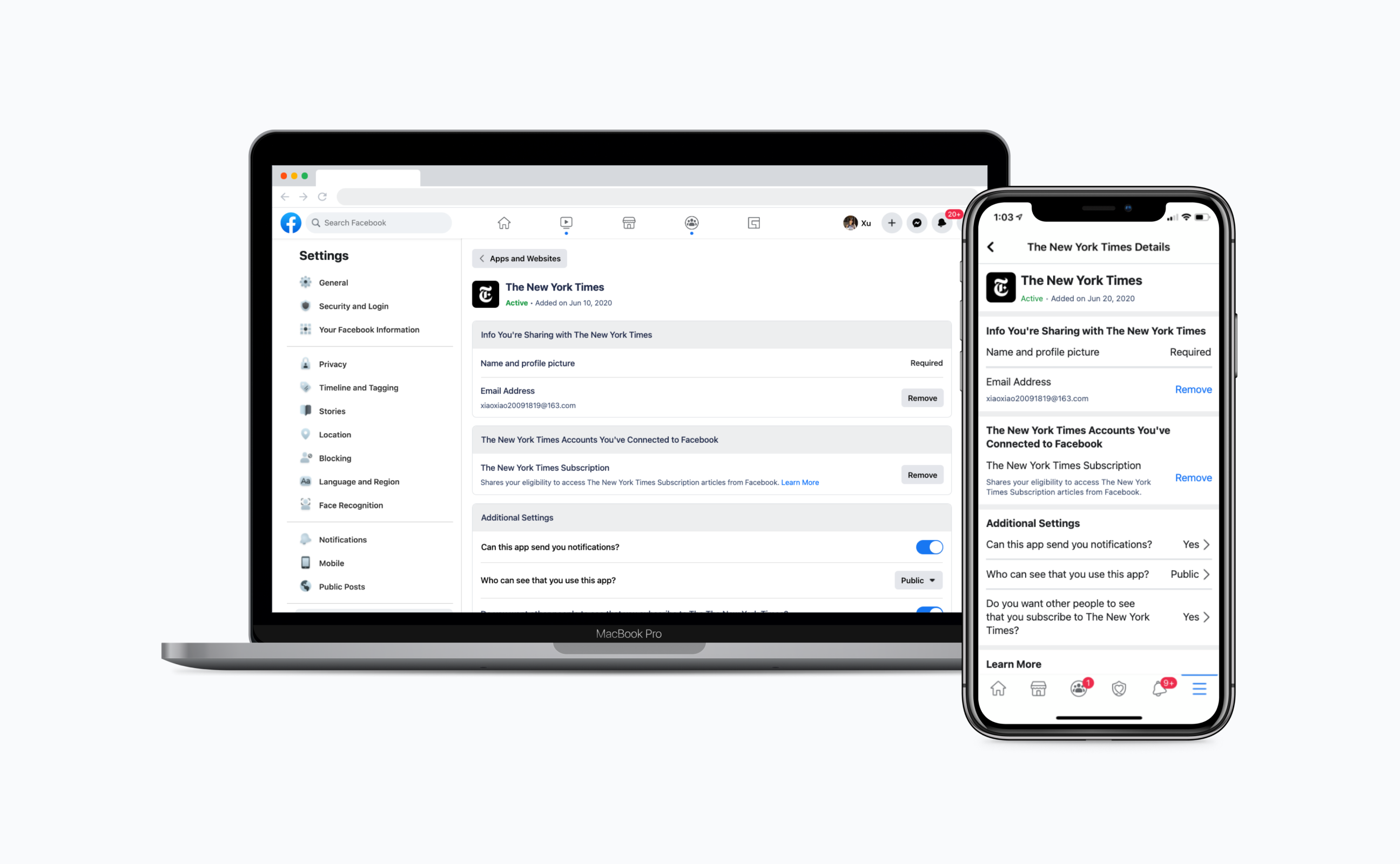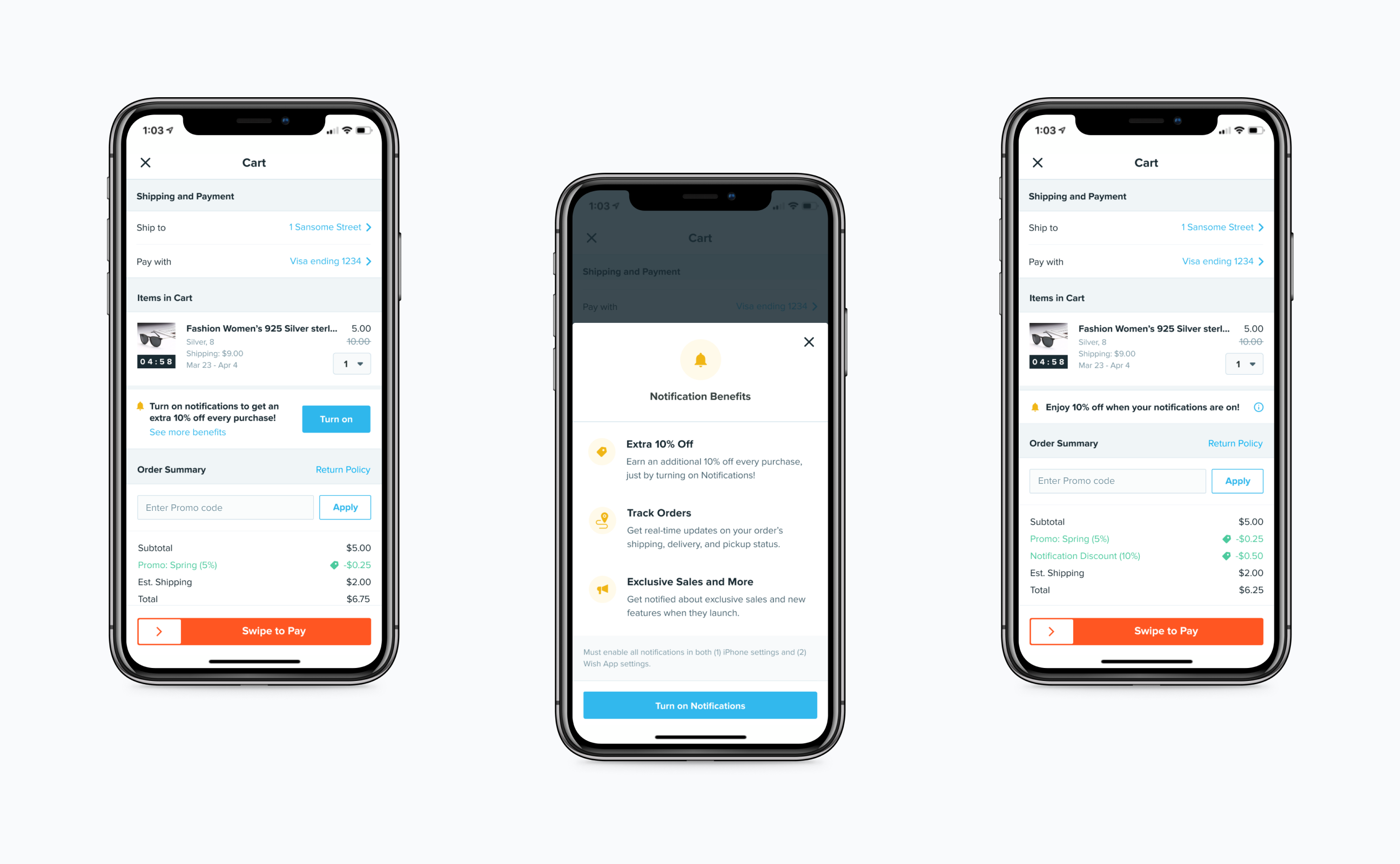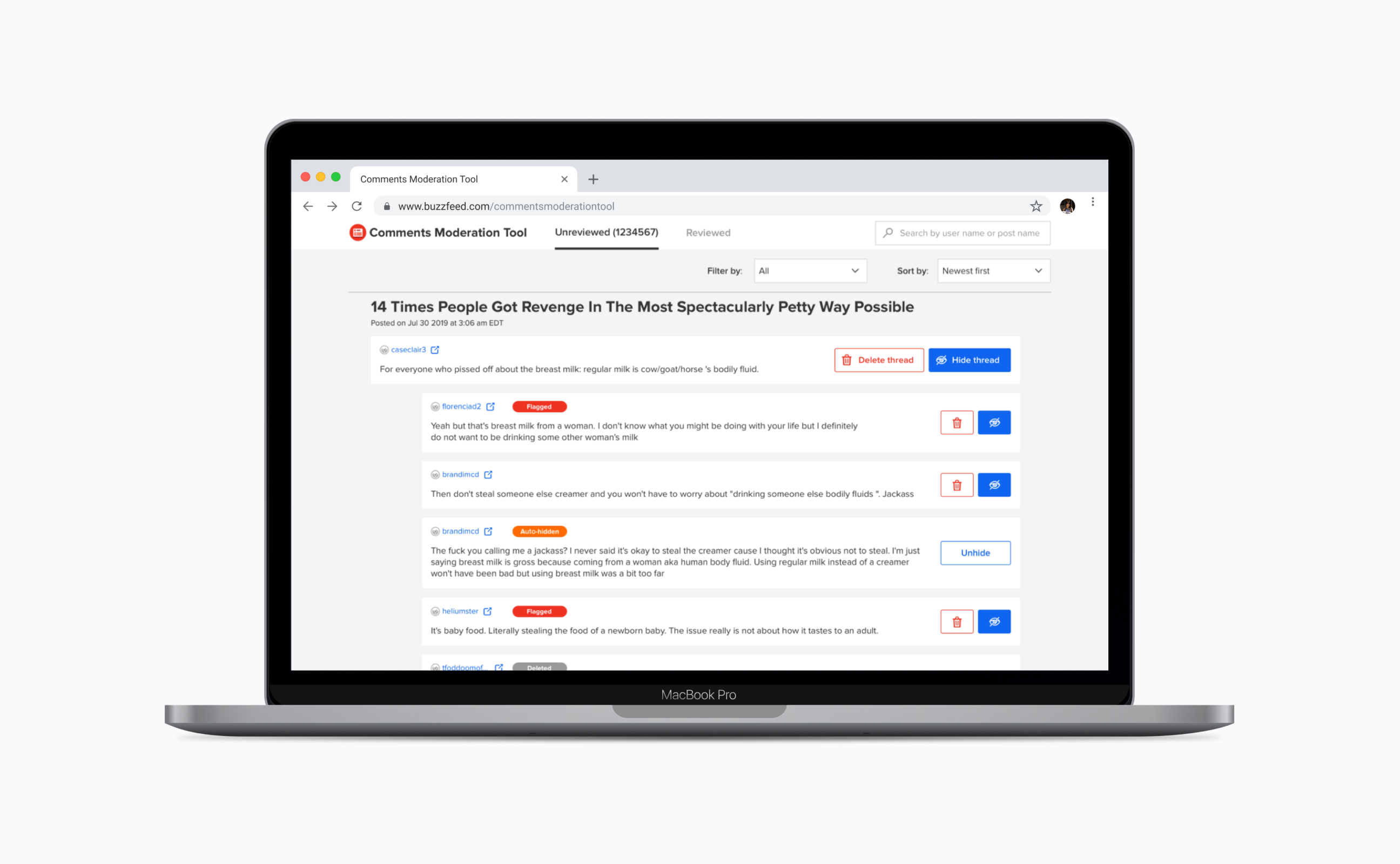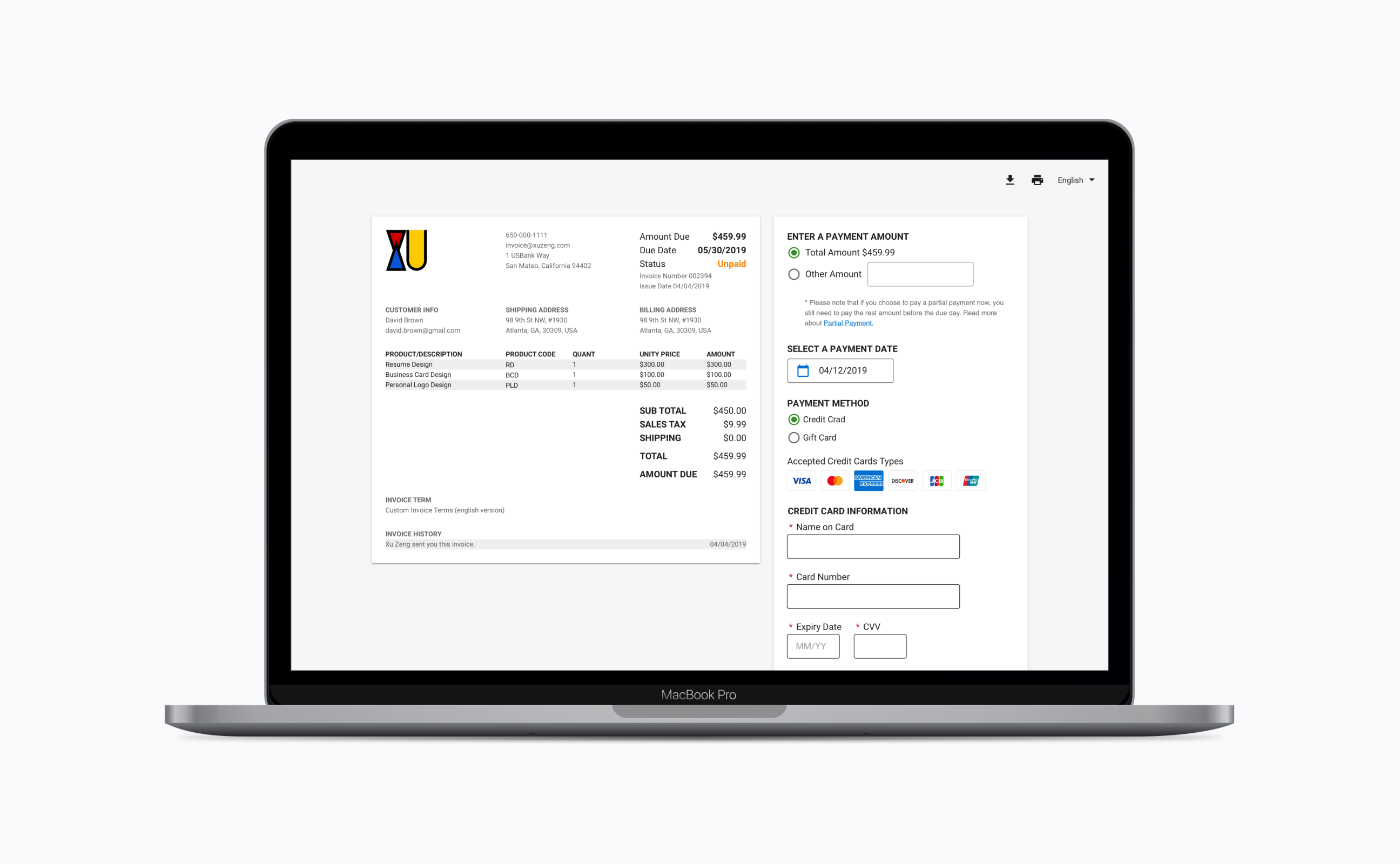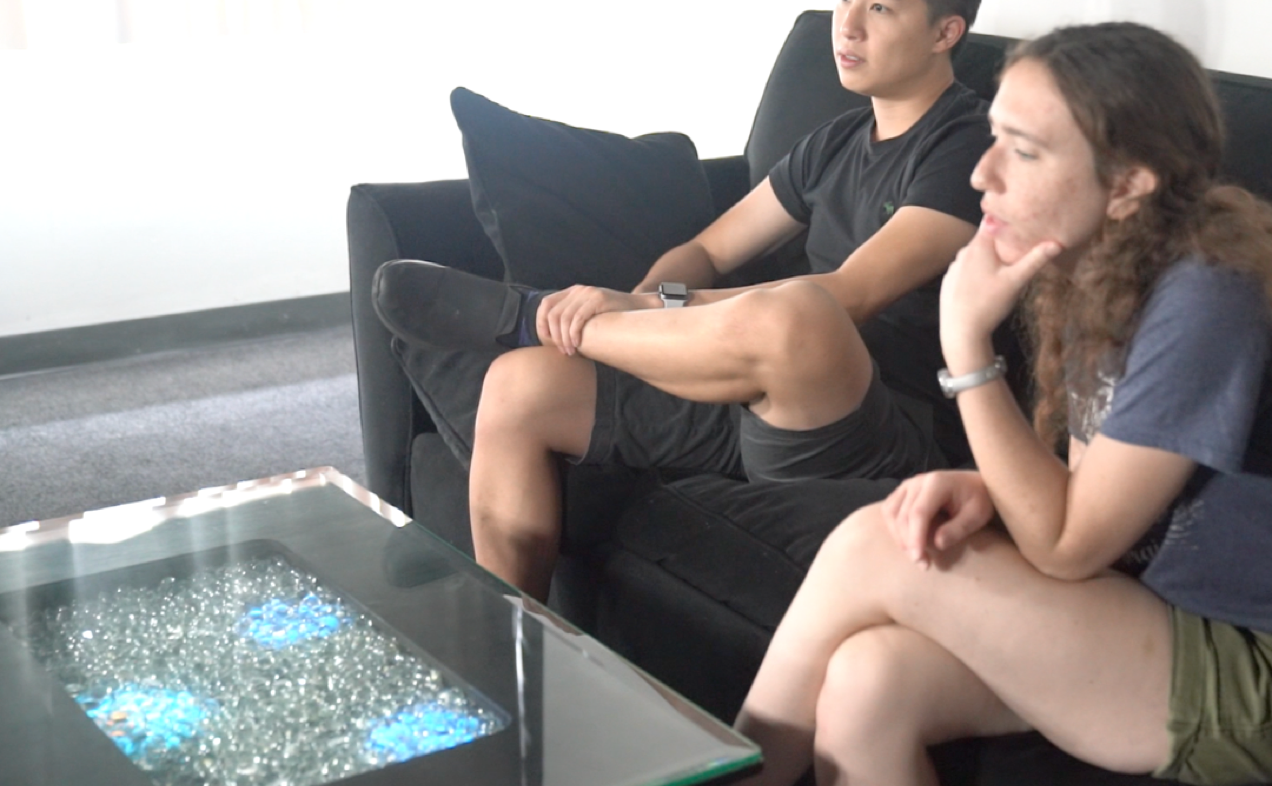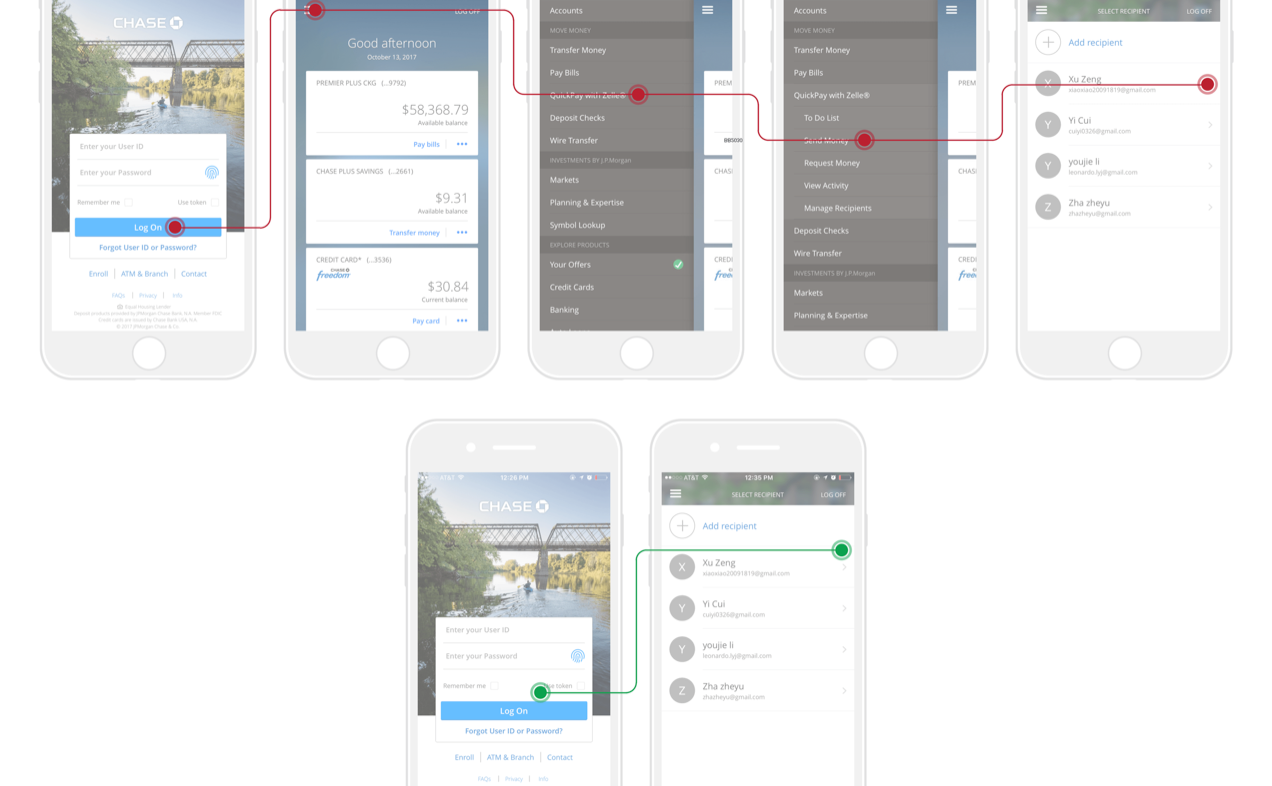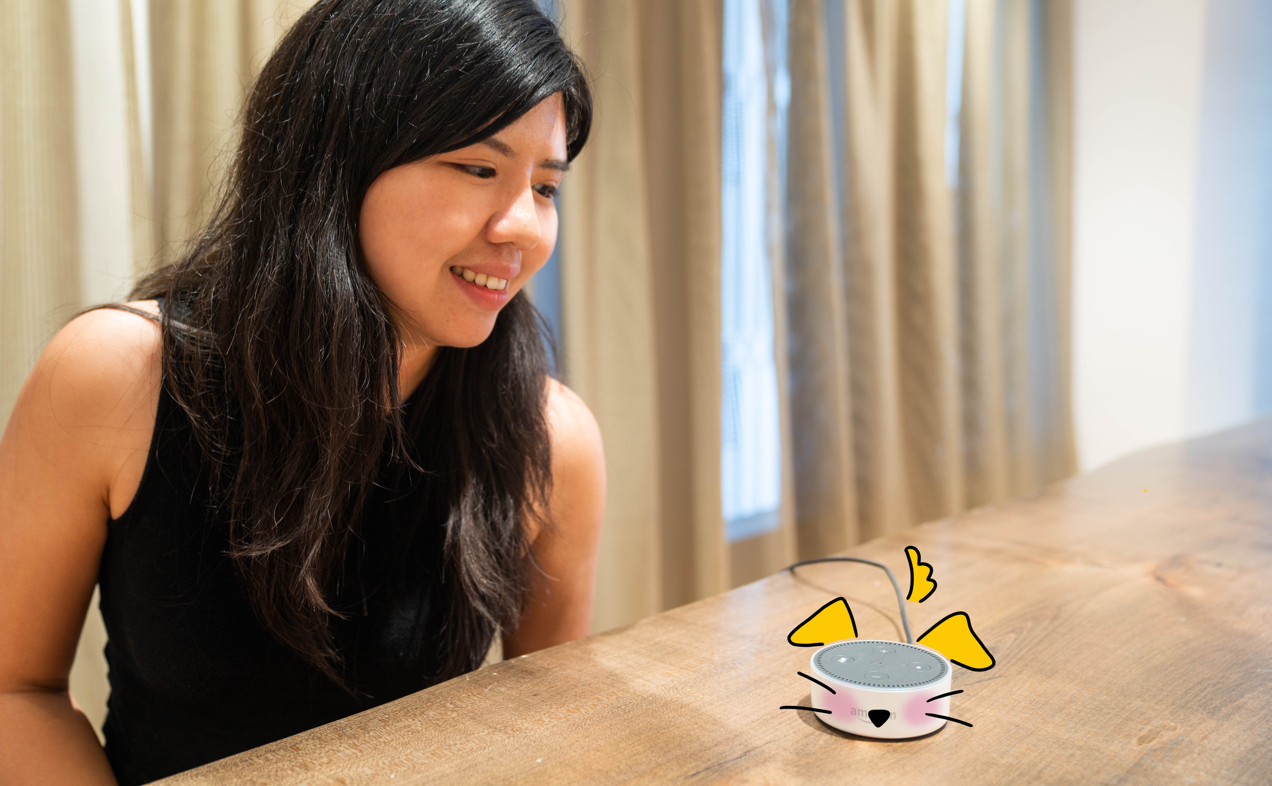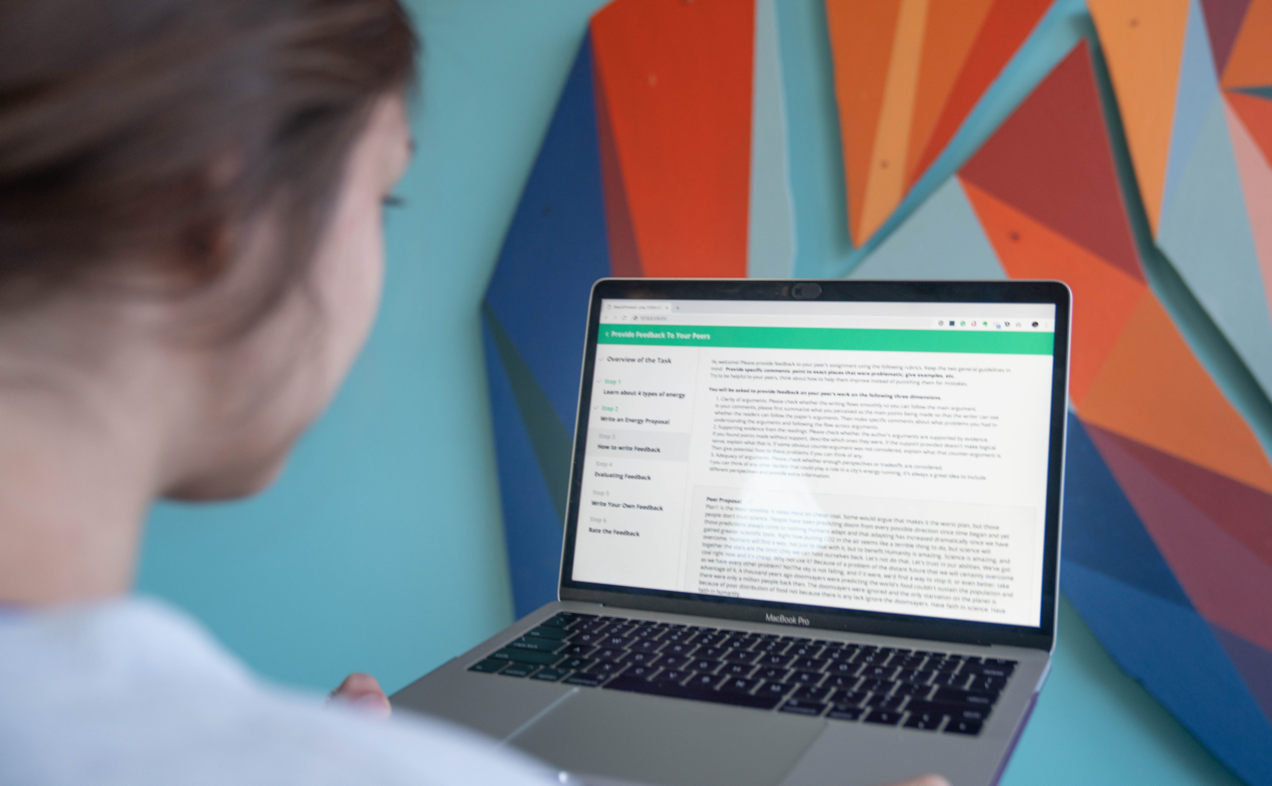
Wish Product Design Intern
Project overview
About Wish
Mobile-shopping app, affordable products
Pre-IPO stage, focused on growth, data driven
Project goal
Designing an incentive to let more users turn on the notifications.
My solution
Incentive discount on the Checkout page
Team
1 product designer (me), 1 PM, 1 copy writer, 1 software engineer
Timeline
Design - March 2020 (2 weeks)
Implementation & AB Test - June 2020
Problem definition
Why did Wish want users to turn on notifications?
Increase user retention
Low notification turn on rate
About Wish users
Sensitive to price
Notifications had a high adoption rate
Why did users turn off notifications?
Disabled notifications when first downloaded
Annoyed by low quality notifications (a while ago)
Why turning on notifications is important?
For Wish:

For users: track orders, discounts & sales, inventory updates, etc
Assumption & Scope
Notifications were valuable to users.
My project only focused on the incentive part.

Define success
Qualitative method - Usability test
Quantitative methods - Notification turn on rate (main metrics), Gross Merchandise Volume (GMV), Profit
Design process
How could we change users’ behavior?
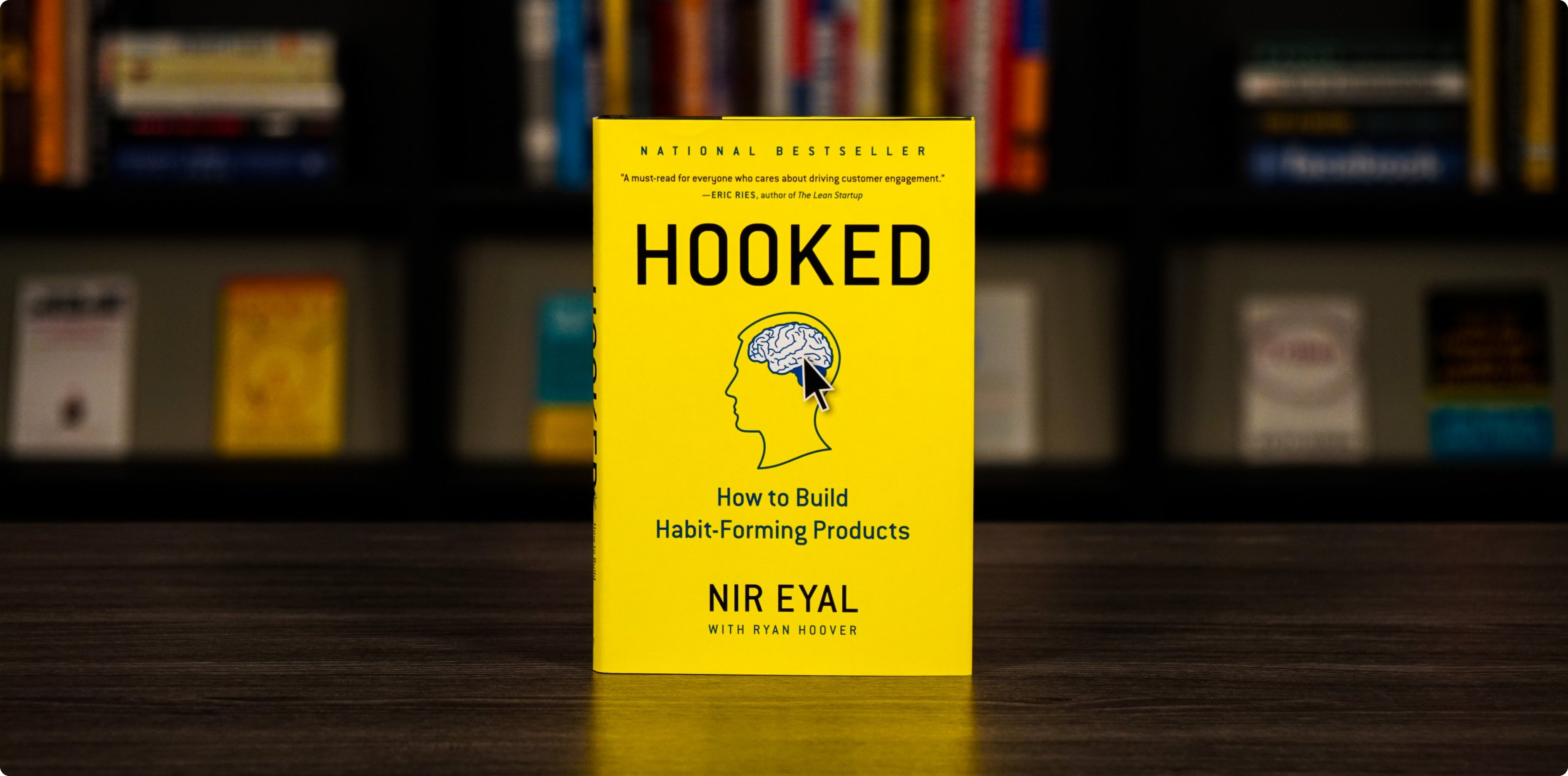
BJ Fogg’s Behaviour Model

Motivation
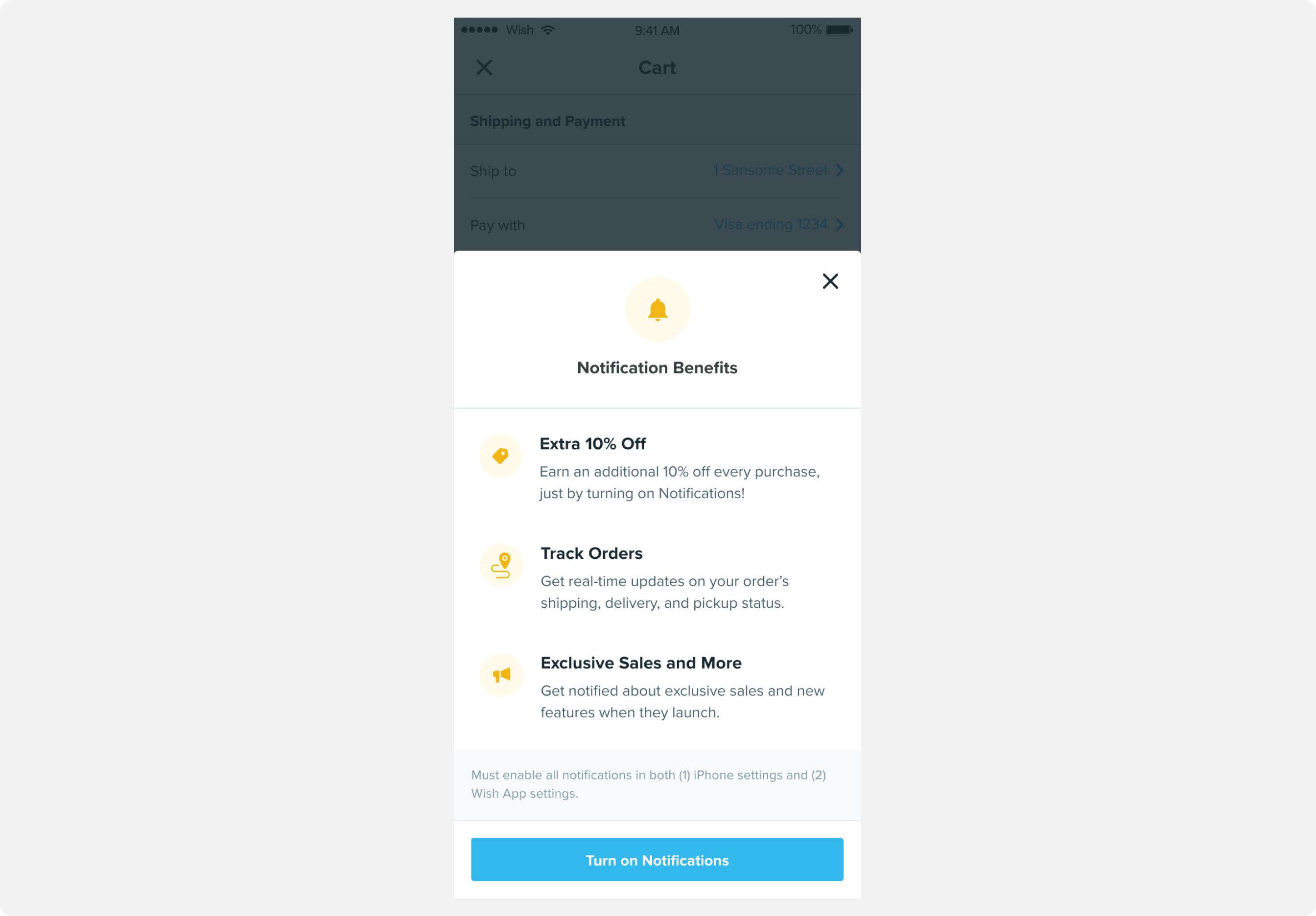
Trigger
Discount
Ability
Turning on notifications is not easy.
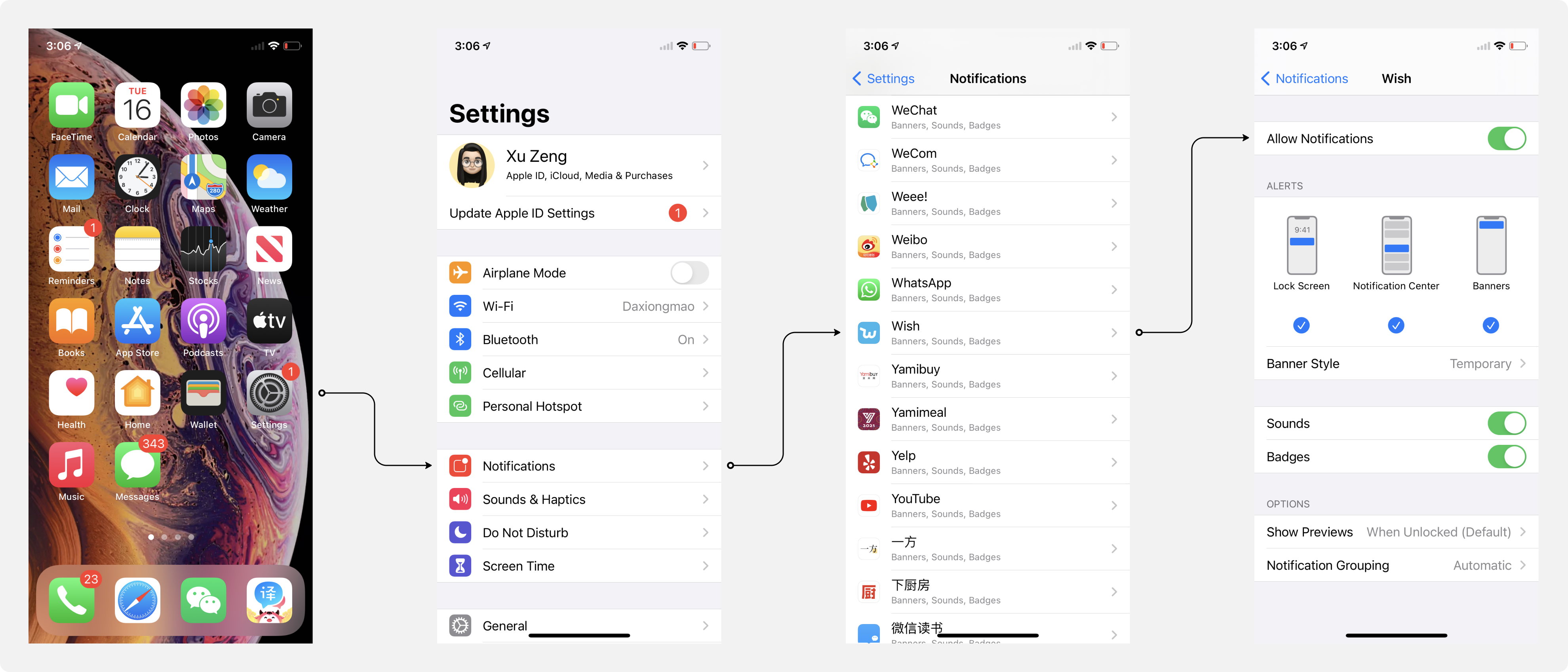
Found an entry point of turning on notifications.
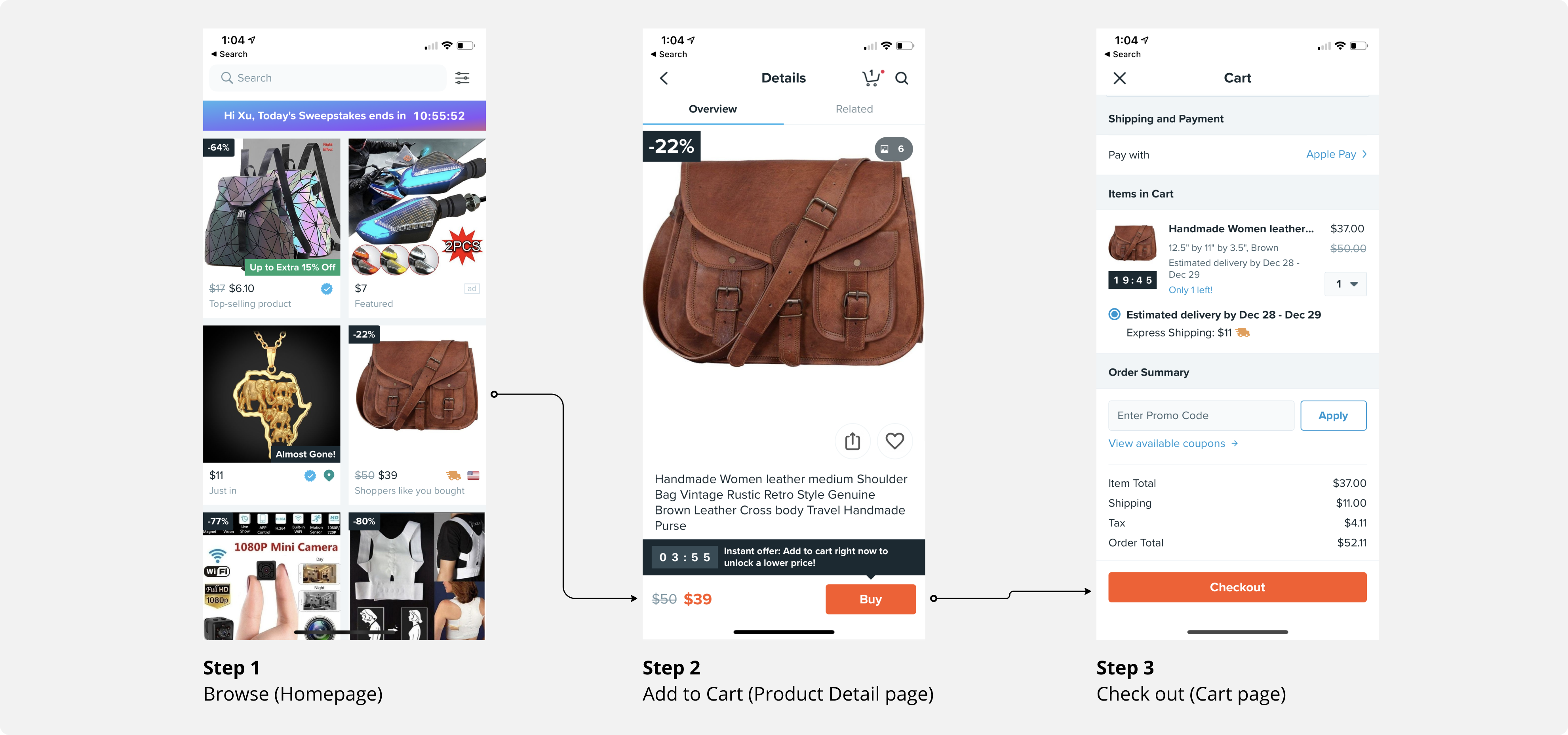
Entry point 1 (Homepage)
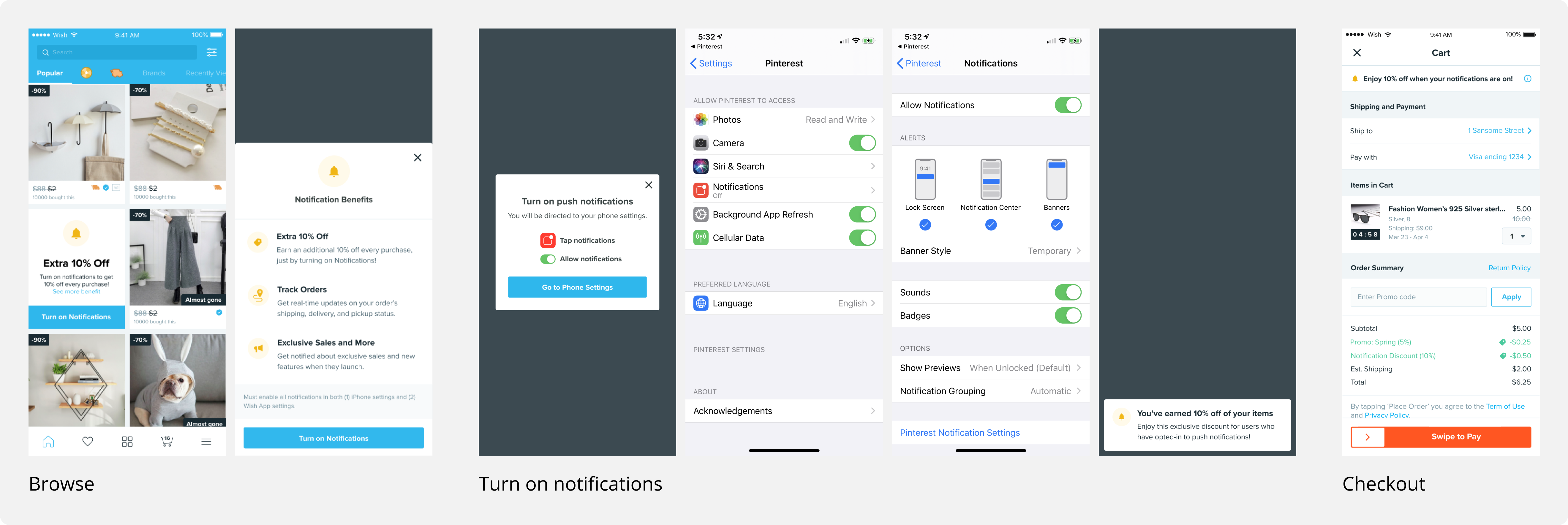
Entry point 2 (Checkout)
Variation 1 (banner at the top of the screen)
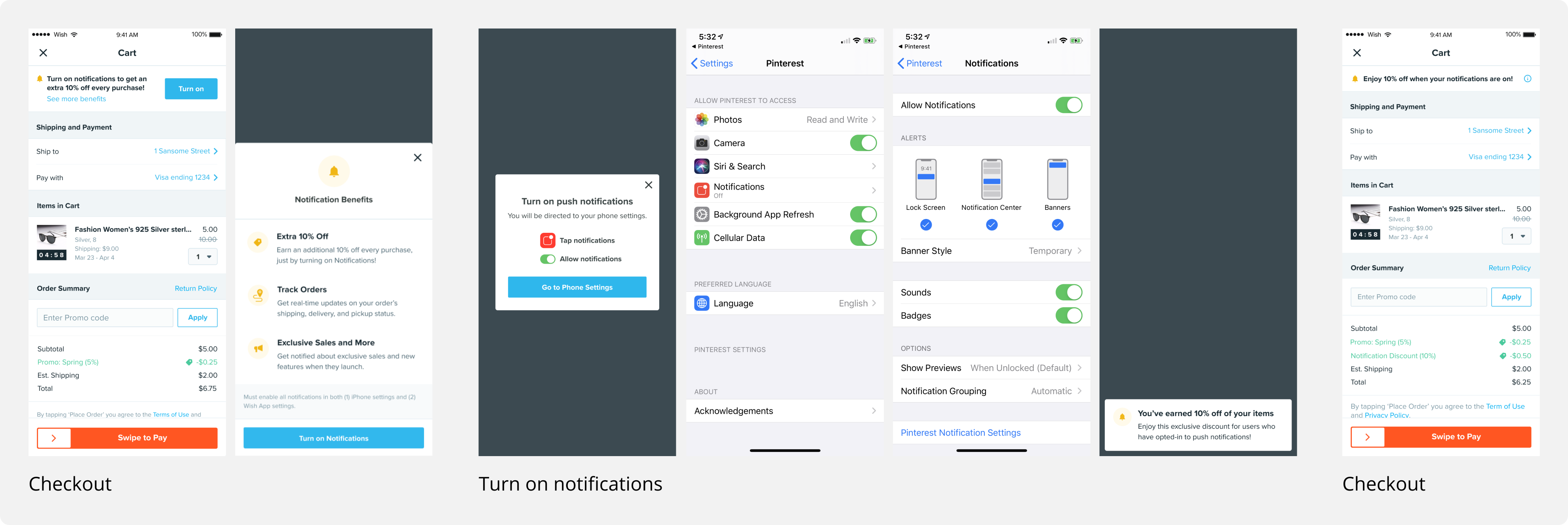
Variation 2 (banner close to the order summary)
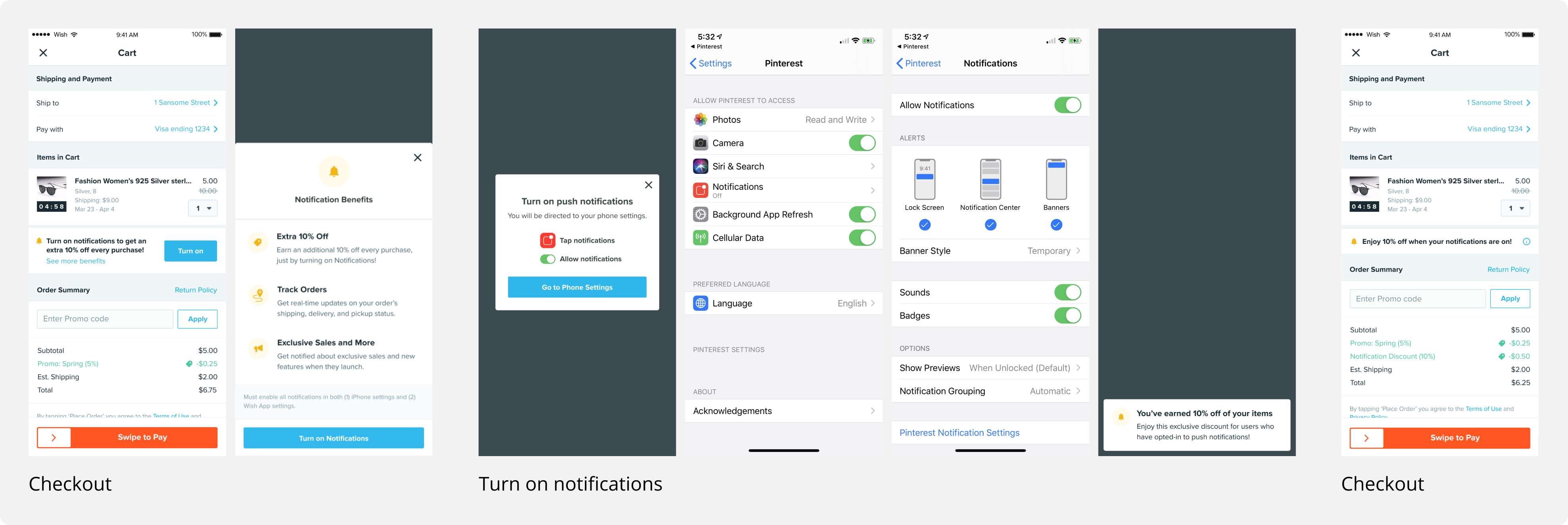
AB test
Round 1 - Evaluated design solution
Result: Entry point 2 Variation 2 won (Notification turn on rate+10%)
Round 2 - Evaluated discount percentage
Result: 2% off won
Reflections
Impact
Designed a solution to increase the notification turn-on rate
Helped the new PM to get more familiar with the design process and user-centered mindset
Learning
Mobile design on a consumer product
Domain knowledge of growth and e-commerce
The mindset of using data to support design decision including proving the feasibility and AB test
What can I do differently if I have more time?
Strategy
My concern: long term result, true value to the users
What I did: voiced my concern, asked the PM to measure long term performance
What can I do differently: dig into the past experiments, user segmentation, propose ideas
Visual & Interaction
Balance the feature level design and the system-level design.
Information architecture/Information hierarchy
AB test
Users’ reactions to the notifications after they turn on them
Side effects
The total turn on count of each solution
Accessibility
I took the initiative of raising the awareness of accessibility after this project:
Invited a guest speaker (UX lead for Android accessibility at Google) to give a design talk on accessibility.
Created an accessibility design guideline
